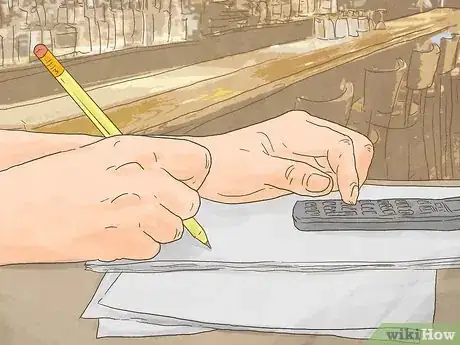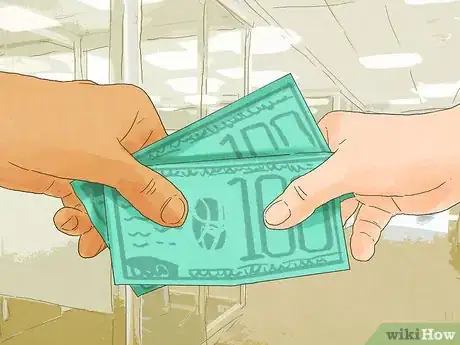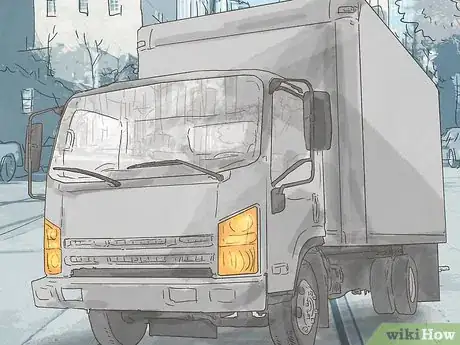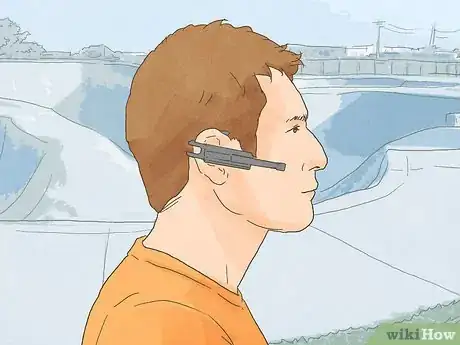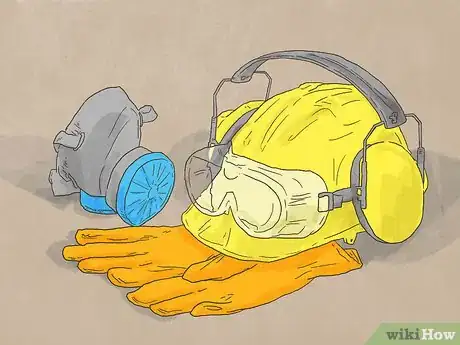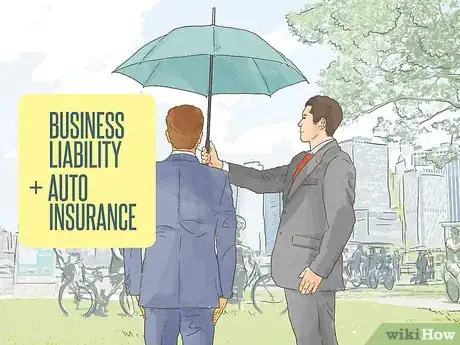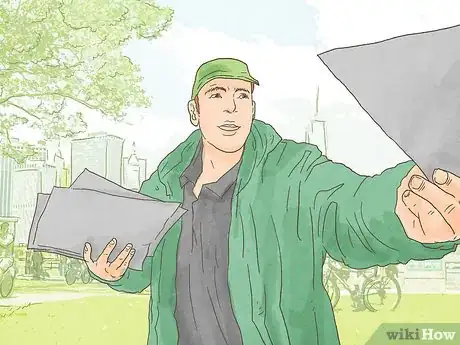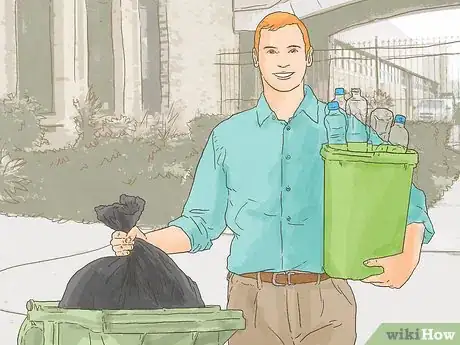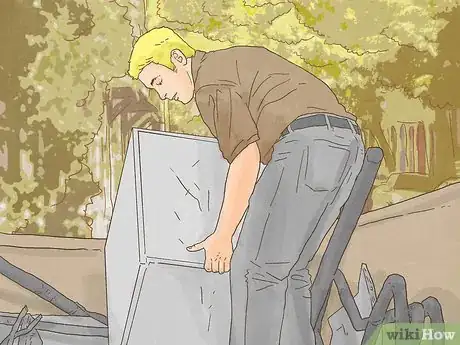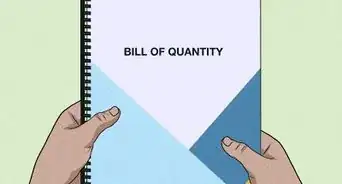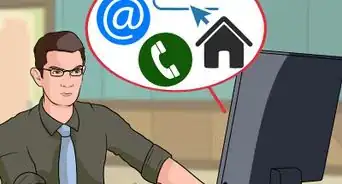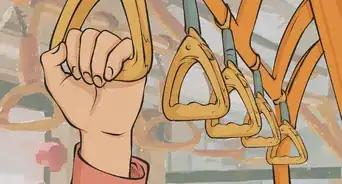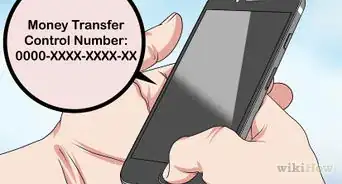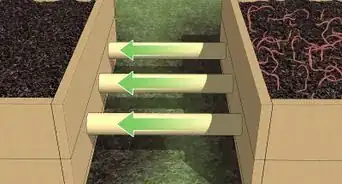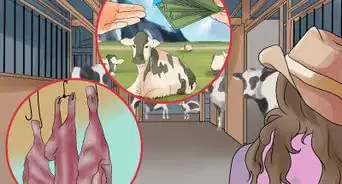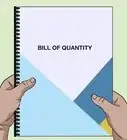This article was co-authored by wikiHow Staff. Our trained team of editors and researchers validate articles for accuracy and comprehensiveness. wikiHow's Content Management Team carefully monitors the work from our editorial staff to ensure that each article is backed by trusted research and meets our high quality standards.
There are 7 references cited in this article, which can be found at the bottom of the page.
wikiHow marks an article as reader-approved once it receives enough positive feedback. In this case, 89% of readers who voted found the article helpful, earning it our reader-approved status.
This article has been viewed 82,347 times.
Learn more...
A junk removal business can bring in significant income under the right management. The best part of it is that you need only a minimal investment of time and money to start such a business. But in order for your junk removal business to be successful, you need to build a good reputation, maintain a busy work schedule, and to find clients who can help you increase the awareness of your brand and improve your reputation among others. Use the following steps to start your own junk removal business.
Steps
Planning Your Junk Removal Business
-
1Assess the market for junk removal. Research the current junk removal businesses in your area. Look for major players and the existence of smaller, competing businesses. Decide whether to focus on residential or commercial junk removal, or both, and then only look at competitors in that market. Make sure to look into their advertising strategies, prices, and service areas. In particular, look for any underserved demographics or markets in your area.[1]
- If there seems to a be a dominant player in your market, try to understand why they are dominant. Think about what makes them more trustworthy or effective in the customer's eye. Then, use what you've found to influence your own business choices.[2]
-
2Decide whether to franchise or start your own business. Franchises offer a number of benefits, including existing business models, advertising, and branding. They'll also help you set up your trucks or give you the option to purchase existing ones complete with branding. However, starting a franchise also can be expensive in the beginning, as you are paying a franchise fee to get into the business. You may also have to give a portion of your profits to the parent company once you've begun operating. Weigh these pros and cons before deciding to buy into a franchise.
- Some of the major junk removal franchises are College Hunks Hauling Junk, 1-800-Got-Junk, JunkLuggers, J Dog Junk Removal, and Junk King.
- The total cost of starting a franchise with one of these businesses can range from about $40,000 to over $200,000.[3]
Advertisement -
3Create a business plan. Your business plan spells out how you intend to start your business and make money. Start by stating your objective and explaining what exactly you will do (which market you will serve, any specialties, etc.). Then, include your market research showing that there is room in the market for your business. Go on to explain your pricing model, startup costs, marketing strategy, and how you plan to fund your business.
- Your pricing model should be based on both your expenses and the prices charged by your competitors. Estimate your expenses (overhead, equipment, employee wages, disposal fees, and gas) and then work from there to determine a suitable pricing schedule.
- Your pricing strategy is up to you. You can charge by weight (though this can be difficult or impractical), by how space in the truck is filled by the junk, or by the job in a sort of holistic, estimated way. Remember, this is just your initial plan; you can always adjust prices later as you become more experienced.
- One strategy is to undercut more established companies by charging less than they do. You may not make as much profit, but you will earn some of their business.[4]
- Consider whether you will use employees, contract labor, or both. Regardless of which you choose, you need a thorough understanding of the laws that define the nature of the workers and the laws affecting their relationship with the company.
-
4Obtain funding to get you started. Luckily, you don't need to worry about setting up an office or leasing storage space to start a junk removal business. However, you will still need some money to get started. Your startup funding needs to cover the cost of your truck, equipment, marketing efforts, and some working capital for your first few jobs. You can cover these expenses with a loan from a bank or credit union, or money from a friend or family member. The Small Business Administration (SBA) also guarantees business loans at banks and can help you qualify for the money you need.
- The first few months could be hard to find enough clients to cover your expenses, so make sure your initial budget can fill the gap.
- You can save some money by renting a junk removal trunk when needed instead of buying one immediately.[5]
Getting Ready to Open For Business
-
1Buy a vehicle. Purchase a second-hand van or truck that you will use to transport client's junk to waste recycling or disposal facilities. Look for one with large load capacity and good fuel economy. You don't need any extras like climate control or leather seats to your vehicle that will just increase its cost. Just make sure it runs reliably; you don't want to end up spending more on repairs than you would on new truck payments.[6]
- You may also need to buy a GPS system if you don't have a smartphone or are unfamiliar with your service area's layout.
-
2Buy hands-free calling equipment. The specifics of a waste removal business are such that you will not have time to sit in your home office waiting for clients to call once your company is up and running. Instead you will have to make and take business calls while you work. A Bluetooth headset or similar hands-free phone equipment will allow you to talk with clients and business partners while you are out collecting people's rubbish.
-
3Buy heavy duty work wear. Removing rubbish is a dirty and demanding job for which you will need durable work clothes and gloves. Loose-fitting trousers are suitable for both household and outdoor jobs. They are not only comfortable to wear for long hours but will prevent household and garden pests, which you will most likely encounter through your career as a waste collector, from biting you through your clothing. Other tools you should buy are a shovel and a rake. Use them to remove dirt, leaves, sand, and other similar debris.
- You may also need more heavy-duty protection, like dust masks and goggles, if you plan to handle more hazardous junk. That said, never agree to a job that puts your employees at risk.[7]
-
4Acquire a business license. Register your company according to your local government requirements and guidelines for waste carriers. You may need to contact your local chamber of commerce or SBA branch to get more specifics on these requirements, as they vary between different counties and states. You will likely have to register a "doing business as" name with your local government, at minimum. There may also be special permits or licenses you need for transporting scrap metal or just transporting junk.
- For example, some localities require that anyone hauling large amounts o materials as a commercial activity possess a license for doing so. Failure to obtain a license before hauling may result in fines or your arrest.
- Other localities may have specific waste removal permits. New York City, for example, requires that junk removers register with the city and apply to obtain a specialized license.
- Try talking with other local business owners to see if they will help you with navigating your city's permit requirements.[8]
- You will also need an employer identification number (EIN) from the IRS if you plan to have employees. Getting this number is free on the IRS's website.[9]
-
5Purchase appropriate insurance. You will also need business liability insurance before you can begin your operations. You will also need auto insurance for your vehicle(s) and workers compensation insurance if you have employees. Check the offers of several insurance companies and select the best deal. Your insurance policy should cover your van, equipment, and any damage caused to a client's property when removing junk from it.[10]
- At minimum, you will need general liability insurance and property insurance. These cover legal expenses resulting from lawsuits, such as if one of your trucks damages the client's property, and damage or loss of business property, respectively. As a small business, you may be able to combine both of these into a business owner's policy.
- You may also want errors and omissions (E&O) insurance to cover situations like a breach of contract with your regular clients. This could result from a perceived failure on your end to collect junk according to an agreement with a customer.
- Finally, workers' compensation insurance covers your business if you are sued by an employee. For example, if an employee is injured on the job, your workers' comp insurance may cover their medical bills.
- Large insurers may be able to offer you a complete package, specialized to the junk removal industry, that contains all of these types of insurance.[11]
Running Your Business
-
1Promote your business. Design flyers on your computer or hire a design & print agency to make them for you. The flyers should be formatted attractively and easy to read, including a brief description and contact details of your company. Pass out your flyers to everyone in your area, businesses and homeowners, who might be interested in your services. Also, place them on utility poles and notice boards. Make sure the distribution of your flyers is according to the local laws. Also, consider placing an ad in your local newspaper to increase your brand's awareness. However, keep in mind that doing so may be expensive and will only buy you a short amount of ad time. Once all this is done, wait for the first phone call to come in.
- Your initial advertising plan will likely be low-budget, so make it work any way you can. For example, try parking your vehicle in an easily-visible location, cold-calling potential customers, or placing a small ad in a local magazine or newspaper.
- Ask your customers where they heard about your business. This will let you know which one of your advertising methods is working best.[12]
-
2Have a plan ready for junk disposal. It's important that you dispose of the junk responsibly. You should have a plan for bringing junk to disposal sites and recycling facilities that includes a plan for driving there quickly and unloading the waste. Remember that you will have to pay a fee for disposing of waste in a landfill, so try to make better use of it by recycling it, selling it for scrap, or donating useful scrap to charities.[13] [14]
- Make sure to contact these disposal sites beforehand to see what types of junk they accept. This can help streamline your disposal process later on.
- You also need to understand any laws affecting the type of waste and their specific disposal rules. For example, most communities now regulate disposal of electronics due to the hazardous materials in their components.[15]
-
3Hire workers as needed. If you find that you can no longer conduct all of your business alone, you should hire workers. Unless work is full-time, consider using contract workers. Remember that you need to comply with labor and immigration regulations. In addition, make sure to avoid just hiring your friends, as this can lead to a strained dynamic with you trying to be both a boss and a friend to the employee. Instead, try posting an ad in the newspaper or online job board with your required qualifications then interviewing suitable candidates. It may take more time than hiring friends, but you'll know you're getting good help.[16]
-
4Train your employees. Though it may seem like junk removal is pretty self-explanatory, the most successful companies in the industry know that you have to provide exceptional service. That is, train your employees to maintain a professional appearance and demeanor when interacting with customers. In addition, make sure that they are trained in careful removal processes that don't leave junk or a mess behind when the job is done.
- Take it a step further by sweeping up the area after a job so that the place is once again ready for your customer's use.[17]
-
5Work for repeat business. Work to impress individuals or organizations that might offer you repeat business. These might include local government bodies, property managers, construction companies, or other local businesses. If possible, organize your relationship with this customer into a formal agreement that includes special pricing or priority junk removal.[18]
- An important metric in the junk removal business is how quickly you can respond to a request for removal. Well-run junk removal businesses can often clear up a location within a day or two of the customer's calling them.[19]
References
- ↑ http://businessdiary.com.ph/1507/how-to-start-a-junk-removal-business/
- ↑ http://www.slideshare.net/giantsector6631/how-to-start-a-junk-removal-business
- ↑ http://smallbiztrends.com/2014/03/top-junk-removal-franchises.html
- ↑ http://businessdiary.com.ph/1507/how-to-start-a-junk-removal-business/
- ↑ http://www.slideshare.net/giantsector6631/how-to-start-a-junk-removal-business
- ↑ http://www.slideshare.net/giantsector6631/how-to-start-a-junk-removal-business
- ↑ http://www.slideshare.net/giantsector6631/how-to-start-a-junk-removal-business
- ↑ https://www.entrepreneur.com/article/217546
- ↑ http://www.slideshare.net/giantsector6631/how-to-start-a-junk-removal-business
- ↑ http://www.slideshare.net/giantsector6631/how-to-start-a-junk-removal-business
- ↑ http://specialty.insureon.com/professions/garbage-collectors/182
- ↑ https://www.entrepreneur.com/article/217546
- ↑ https://www.angieslist.com/articles/7-signs-quality-junk-removal-services.htm
- ↑ http://www.slideshare.net/giantsector6631/how-to-start-a-junk-removal-business
- ↑ http://www.ncsl.org/research/environment-and-natural-resources/e-waste-recycling-legislation.aspx
- ↑ https://www.entrepreneur.com/article/217546
- ↑ https://www.angieslist.com/articles/7-signs-quality-junk-removal-services.htm
- ↑ http://www.slideshare.net/giantsector6631/how-to-start-a-junk-removal-business
- ↑ https://www.angieslist.com/articles/7-signs-quality-junk-removal-services.htm
About This Article
To set up a junk removal business, start by purchasing a large van or truck with good fuel economy so you can easily transport trash. You'll also need hands-free calling equipment so you can take new orders while you're on the go. Then, apply for a business license according to the local requirements for waste disposal, and arrange appropriate business insurance. You'll also want to contact disposal sites to find out what junk they accept and the fee you'll have to pay them to dispose it. For tips on how to develop a business plan and how to hire employees, read on!


